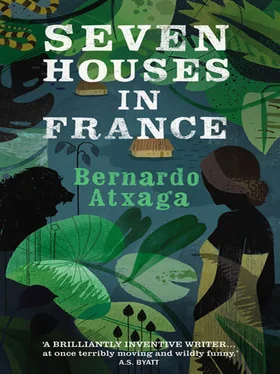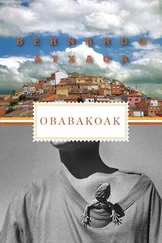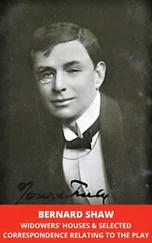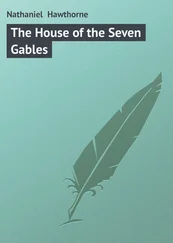As they passed the hut, Van Thiegel counted twelve tusks and twenty-six porters, and as so often happened, his mind split in two. One part thought how pleased Christine would be when she learned that her husband had collected all that ivory, and how her joy would only be multiplied when she found out that he himself had amassed more than six hundred mahogany logs. The other part of his mind was more malevolent. The four missing porters, he thought gleefully, must have eluded Chrysostome’s vigilance and escaped.
This second thought cheered him a little. Perhaps that was why Lalande Biran was so angry, knowing that, at the crucial moment, faced by the threatening world of the jungle, the poofter had turned out not to be such a good shot after all. As Van Thiegel always said, it was one thing to aim calmly at a target on a firing range or in the area around Yangambi, but quite another to do so when one was being watched constantly by the enemy. The rebels were not as biddable as the rubber-tappers.
Donatien ran over to the Captain, followed by an askari triumphantly waving a bag. Van Thiegel realised what must have happened. They had thought the bag was lost, and the soldier was pleased to have found it. This find, however, did nothing to improve Lalande Biran’s mood. He made an abrupt gesture, and the askari raced off towards the slaughterhouse. Donatien said something to the Captain, pointing up at Government House. This, Van Thiegel knew, meant that coffee had been prepared. Whenever Donatien sensed trouble, he always made coffee. Richardson called him le géant du café , the coffee giant, because he was six foot five tall and made rather a good waiter. Lalande Biran ignored the offer and followed the other men down to the river.
Van Thiegel put on his hat and slipped out of the hut by the back door. Before he joined Lalande Biran, he wanted to know what was in that bag and, in passing, take a look at the cheetah.
One of the women working in the slaughterhouse showed him the creature’s head. There was a bloody hole just above its left eye. A single shot; a single cartridge. Van Thiegel swore loudly.
The bag lay in one corner of the slaughterhouse, next to a clay oven. When he emptied it, three hands fell out. Just three. And yet four porters were missing, which meant that one had got away. The poofter might be a good shot, but one escapee, one out of four, meant a twenty-five per cent loss.
He left the slaughterhouse and headed for the river. Down below, near the jetty, he saw someone swimming. He assumed it must be Lalande Biran.
A black servant was coming up the hill, and Van Thiegel stopped him.
‘Donatien told me to take these to Government House,’ said the servant, showing him the two bottles of Martell brandy he was carrying.
‘One of the bottles would be better off in my office. I drink more than the Captain,’ said Van Thiegel, laughing. ‘When you’ve done that, bring a couple of towels down to the beach and leave them on one of the mahogany logs.’
The servant looked doubtfully back at the beach.
‘Oh, leave them where you like, but put them where we can see them and not underneath the logs.’
Before proceeding, Van Thiegel made a gesture with his hand as if shooing away a mosquito.
The water in the river was flowing at the ideal rate, very gently. Lalande Biran and Van Thiegel swam about a hundred yards against the current towards the pile of mahogany logs near the jetty, then turned turtle and swam back, allowing themselves to be carried almost effortlessly to their starting point, opposite the Club Royal.
The two men had very similar styles, their movements equally measured and rhythmic, heads and arms emerging simultaneously from the water. They turned at the same time too. Their thoughts, however, were very different.
Van Thiegel was wondering how the fourth porter had managed to get away, and whether it had been Chrysostome’s fault. In that ever-divided mind of his, he was also concerned by the Captain’s mood. He couldn’t understand why he was in such a foul temper when the hunting had clearly gone so well — twelve elephant tusks and a cheetah — and when he, Van Thiegel, had amassed the six hundred mahogany logs that lay cleaned and placed in neat piles on the shore.
Lalande Biran could think of nothing while he was swimming upstream. The current was gentle enough, but he had little energy left after almost three weeks in the jungle, and it took all his strength to reach the jetty and the mahogany logs. When he drifted back downstream, gazing up at the sky, he was concentrating on writing the lines of a poem: ‘It is not a lived-in heaven, but a desert; it is not Michelangelo’s heaven, peopled by angels and saints, and with the figure of God greeting Adam …’
Lalande Biran felt so uninspired that he slapped the water hard. Van Thiegel glanced at him, but received no response.
As if the noise of the slap had awoken his muse, Lalande Biran suddenly knew how to continue the poem: ‘This heaven is a cave, blue only in appearance, a refuge for bats. Hanging upside down in there is the Hope of which the Master spoke; there, too, hang Love and Youth …’
Unhappy with the direction the poem was taking, Lalande Biran ducked under the water and stayed there for a while. Van Thiegel swam on, but very slowly, without leaving the Captain’s side.
‘Biran,’ he said, ‘if there’s something worrying you, I’d like to know. I’m your friend as well as being your second in command.’
They were opposite the Club Royal now, next to the small dock for canoes. Lalande Biran stood up. The water came to his waist. ‘You’re also my associate,’ he said. ‘Allow me to congratulate you on your success with the mahogany.’
His answer to Van Thiegel’s question went no further than that, but it had its continuation — its coda, one might say without stretching the metaphor too far — in Lalande Biran himself. He was feeling increasingly annoyed with Christine. She was always demanding more: more ivory, more mahogany, more effort. Not content with being the owner of six houses in France, one of them a villa in Biarritz that had once belonged to a Russian prince, she wanted another, a seventh house, in St-Jean-Cap-Ferrat, one of the most expensive places in the civilised world. And the price he paid was to spend seven years in the Congo, two more than the five they had initially agreed. Seven years beneath that deserted sky, seven years listening to the screams of the mandrills and the chimpanzees. Her demand for more would mean another hunting party, perhaps not as gruelling as the one he had just returned from, but it would certainly not be without its problems. Hunting parties were risky whether in the dry or the rainy season, and there were always unforeseen incidents. He could not help thinking, too, that he wasn’t getting any younger, that he was not the man he was, and that three weeks in the jungle had left him utterly drained. His body was covered in bites and scratches, and although they hadn’t encountered any tse-tse flies or red ants, he couldn’t be sure he had avoided catching one of the infinite diseases lurking in the jungle. He found it very hard to understand Christine’s insistence. Nor could he understand his own dejection. This was why he couldn’t write any poems. Because his muse could not hear or see well in that tangle of negative feelings: disquiet, rage, the troubling sense that he was being far too indulgent with his wife.
He set aside the poem about the sky in Yangambi and started thinking about another that had been going round and round in his head during the hunt: ‘When he reaches camp, the weary hunter falls, exhausted, but before he sleeps, out of his tiredness slips the truth, like a white egg from a black bird: enough, it’s time to seek the company of friends …’
Читать дальше












